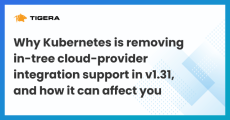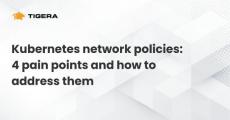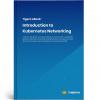- February 2025 (2)
- October 2024 (1)
- September 2024 (2)
- August 2024 (1)
- July 2024 (3)
- June 2024 (2)
- May 2024 (5)
- April 2024 (2)
- March 2024 (2)
- February 2024 (2)
- December 2023 (3)
- October 2023 (1)
- September 2023 (1)
- August 2023 (4)
- July 2023 (2)
- June 2023 (3)
- May 2023 (3)
- April 2023 (1)
- February 2023 (3)
- January 2023 (5)
- December 2022 (2)
- November 2022 (2)
- October 2022 (2)
- September 2022 (1)
- August 2022 (4)
- July 2022 (1)
- June 2022 (5)
- May 2022 (3)
- April 2022 (1)
- March 2022 (2)
- February 2022 (4)
- January 2022 (4)
- December 2021 (5)
- November 2021 (5)
- October 2021 (6)
- September 2021 (4)
- August 2021 (7)
- July 2021 (7)
- June 2021 (22)
- May 2021 (6)
- April 2021 (3)
- March 2021 (3)
- February 2021 (4)
- January 2021 (9)
- December 2020 (8)
- November 2020 (7)
- October 2020 (10)
- September 2020 (13)
- August 2020 (14)
- July 2020 (12)
- June 2020 (10)
- May 2020 (14)
- April 2020 (7)
- March 2020 (6)
- February 2020 (2)
- January 2020 (1)
- December 2019 (3)
- November 2019 (3)
- October 2019 (5)
- September 2019 (4)
- August 2019 (3)
- July 2019 (10)
- June 2019 (9)
- May 2019 (10)
- April 2019 (8)
- March 2019 (11)
- February 2019 (9)
- January 2019 (9)
- December 2018 (3)
- November 2018 (3)
- October 2018 (4)
- September 2018 (1)
- August 2018 (1)
- July 2018 (3)
- May 2018 (1)
Kubernetes is being adopted by every major enterprise on the planet for deploying modern, containerized applications. However, containers are highly dynamic and break their existing security models. Tigera provides zero-trust network security and continuous compliance for Kubernetes platforms that enables enterprises to meet their security and compliance requirements.
Tigera’s technology is recognized and trusted as the de facto standard for Kubernetes network security. Our open source software, Tigera Calico, provides production-grade security, and our commercial offerings layer on advanced security capabilities, enterprise controls, and compliance reporting.
Kubernetes Requires a Modern Approach to Security and Compliance:
- Zero-Trust Network Security: With 40% or more of all breaches originating from within the network, you must always have to assume that something has been compromised. Applications running on Kubernetes make heavy use of the network for service to service communication. However, most clusters have been left wide open and are vulnerable to attack. A zero trust approach is the most secure way to lock down your Kubernetes platform.
- Continuous Compliance: Kubernetes is dynamic and constantly changing. Moments after a compliance audit is completed the environment will have changed again. A continuous compliance solution is the only way to prove that your security controls have been implemented properly now and historically.
- Visibility and Traceability: Applications running on Kubernetes Platforms have constantly changing IP addresses and locations that makes it impossible to use traditional flow logs to debug issues and investigate anomalous activity. The only accurate approach is to use Kubernetes labels and workload identity in your netflow logs.
- Multi-cloud and Legacy: Many applications running on Kubernetes will not be greenfield. Applications often need to communicate securely with other systems outside of the cluster, such as on-premises or cloud-based VMs, bare metal servers and databases. To achieve zero trust security for Kubernetes, your security policies must be capable of expanding beyond the cluster.
Zero Trust Network Security and Continuous Compliance for Kubernetes Platforms.
























